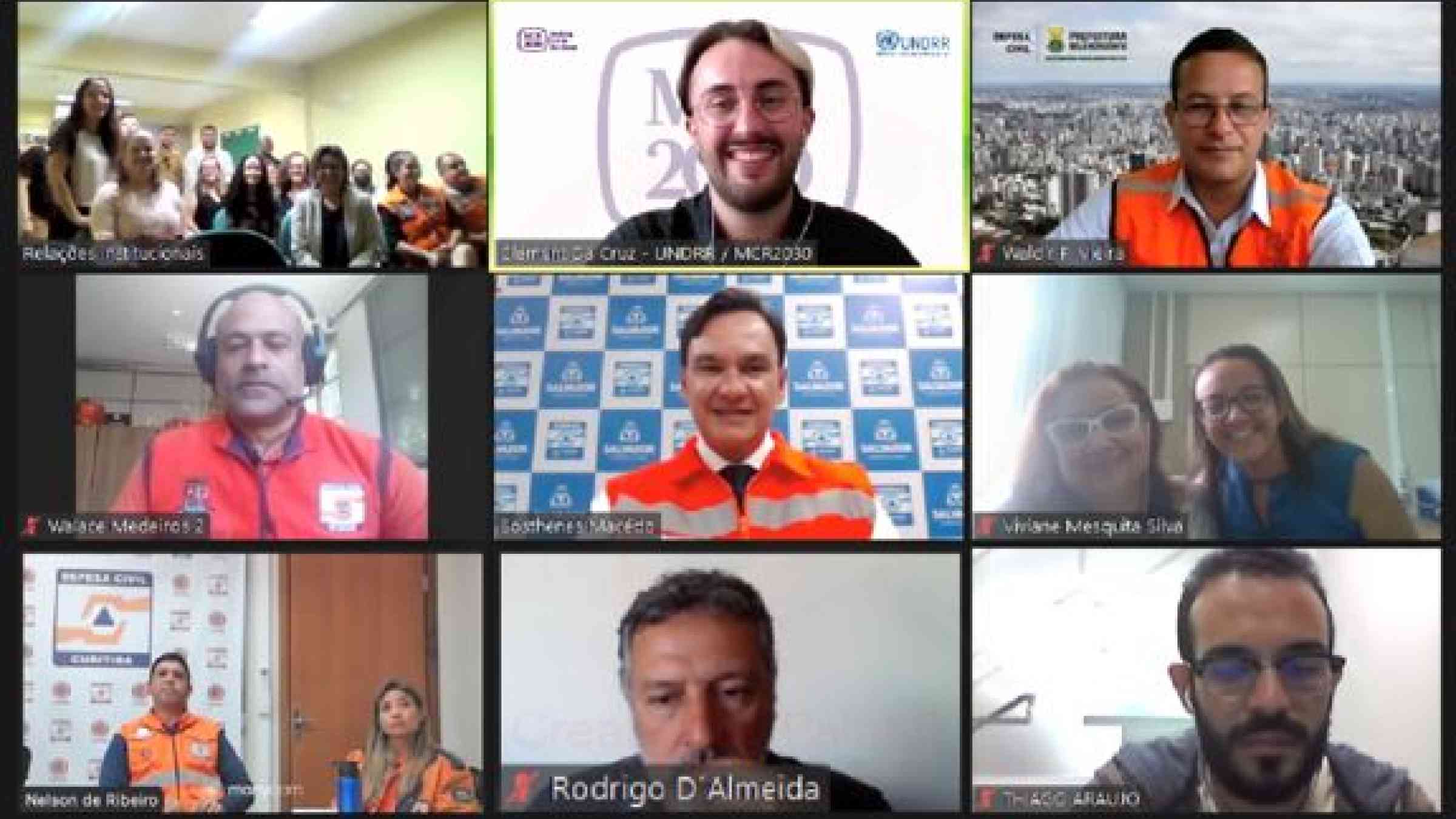Local Brazilian governments and MCR2030 partners join forces to support Recife with capacity building for integrated risk management and resilient disaster recovery

On August 25th and 26th, the United Nations Office for Disaster Risk Reduction (UNDRR) together with Local Governments for Sustainability (ICLEI) South America organized events directed to provide technical assistance to the city of Recife (PE), which included the participation of strategic partners and different Brazilian local governments that are part of the Making Cities Resilient 2030 (MCR2030) initiative.
Adriana Campelo, Regional Coordinator for the MCR2030 initiative, pointed out that MCR2030, in close collaboration with its strategic partners, including ICLEI and R-Cities, has been working to create nodes of resilience in Brazil with the purpose of leaving no city behind.
Adriana Campelo, Regional Coordinator for the MCR2030 initiative
As recalled, in May 2022, Recife suffered the impact of heavy intense rains that highlighted the need for the city to speed up the implementation of urban resilience actions in the face of catastrophes and climate change. Following the disaster, UNDRR and ICLEI expressed their joint commitment to support Recife with a resilient recovery. As co-leaders of the MCR2030 initiative, the two organizations have developed a strong collaboration to support Brazilian cities in advancing building resilience to climate and disasters.
The training began on August 25th with Civil Defense secretaries and technical teams from the cities of Recife (PE), Curitiba (PR), Belo Horizonte (MG), Petrópolis (RJ), Niterói (RJ) and Salvador (BA) came together to provide knowledge, share good practices and strengthen the resilience of Brazilian cities that are currently part of the MCR2030 initiative.
Nelson Ribeiro, Coordinator of Protection and Civil Defense of Curitiba
According to Clément Da Cruz, Technical Advisor for the MCR2030 initiative, the event showed the following common trends in Brazilian cities regarding their risk management priorities: a) a focus on the implementation of technological innovations adapted to local needs and low cost for risk monitoring; b) the greater efficiency of operation of a Civil Defense system that includes other secretariats, as well as the support of the private sector and the communities; c) the benefits of intermunicipal disaster management with a metropolitan scale approach and solidarity between cities; and, d) the use of a simplified language for risk communication with the community and promotion of community leadership in resilience actions.
The sessions continued the following day with a technical training for the Civil Defense teams of Grande Recife (including municipalities such as Olinda, Jaboatão and Camaragibe) that aimed at strengthening their disaster recovery. The training included the participation of Resilient Cities Network (RCN), the Secretary of Civil Defense of the State of Pernambuco (SEDEC-PE), the National Center for Monitoring and Alerts of Natural Disasters (CEMADEN) and academics from the University Federal of Pernambuco (UFPE).
Braulio Díaz, Regional Manager for Institutional Relations and Advocacy at ICLEI South America, reiterated the institution's commitment to move forward with disaster risk reduction actions that are more inclusive, innovative and efficient and that allow sustainable, resilient and people-focused development.
The event ended with words from Eugene Zapata, General Director for Latin America and the Caribbean at Resilient Cities Network (RCN) who recommended that the cities of Pernambuco consult other cities belonging to the R-Cities network to learn from their experiences on their paths to resilience, including their planning processes for urban resilience actions and post-disaster reconstruction experiences. He brought up some experiences from Salvador (Brazil) and Cali (Colombia) and highlighted the new challenges that have arisen today, such as adaptation to climate change, digitalization and metropolitan governance.

